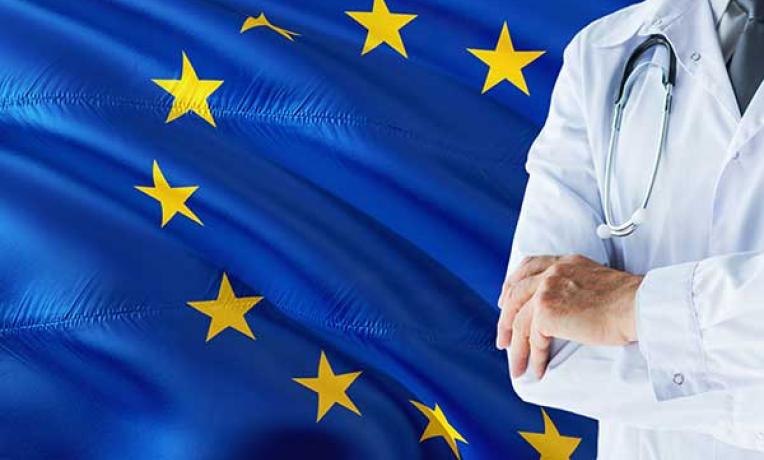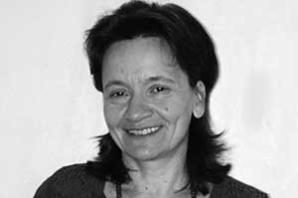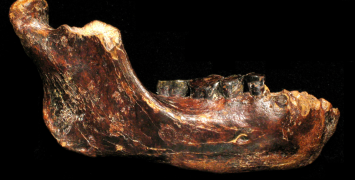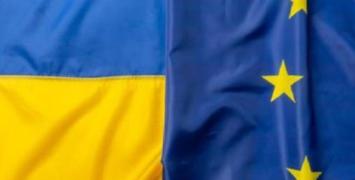What makes us Europeans?
What holds Europe together? In the face of economic instability, shifting political trends and a global pandemic, this question comes to mind more and more often. ERC grantee Anelia Kassabova is part of a team of four researchers who, in 2019, won a Synergy Grant to investigate this issue and find what really ‘unites us in diversity’.

From Western countries that, after the Second World War, were shaped by capitalism and the influence of the United States, to countries on the other side of the Iron Curtain, where the Soviet Union and its communist state left evident marks, Europe is heterogeneous in terms of language, culture, geography and, above all, political history. What then are the common values that unite this large union of countries?
ERC grantee Anelia Kassabova at the Institute of Ethnology and Folklore Studies with the Ethnographic Museum of the Bulgarian Academy of Sciences in Sofia, is part of a large international team investigating this issue. The researchers, who approach the problem from a variety of multi-disciplinary perspectives, have observed that one belief which appears to be shared by all European countries is the value and necessity of public health. The rise of a more or less developed welfare state, which affirms the right of citizens to be healthy and have access to some form of medical care, is a principle that caught on in Europe in both blocs.
By studying the approaches of different countries to several issues that affect public health – including fertility, sexuality, disabilities, labour safety, mental health and wellbeing – the team will investigate the extent to which approaches in different countries resemble each other. ‘The goal of the project goes beyond comparison,’ says Kassabova. ‘It aims to add new empirical insights and to strengthen new ways of thinking about the shared and entangled East-West history.’
Watching this video you are accepting Youtube cookies policy
United in diversity
European governments are united by a concern for their citizen’s health and the wellbeing of the ‘social body’ – the common good. And this is something that has been developed in controversial dialogue between East and West. It offers a lens to analyse what keeps Europe together. A lens, which is particularly relevant today in the face of the largest health crisis to hit the world in the last hundred years.
‘The COVID-19 pandemic increases the need for knowledge in all areas of science – not just medicine, but also the humanities and social sciences,’ says Kassabova. ‘After the first reactions, after the closure of state borders, both literally and figuratively, the need for supranational solidarity grew rapidly. An essential prerequisite and at the same time an essential element of this solidarity is a common memory, a common understanding of the entangled world history.’ Studying what unites Europe, not in spite but because of our differences, is a radically novel approach to the history of our continent. Why did Kassabova and her colleagues look at medicine? ‘This is a field in which both East and West developed at a similar pace,’ she explains. ‘Both had a particular conception of a state medical system, and both approaches underpinned the hope for a better future for citizens.’
A cooperative effort
Kassabova is partnering with three other researchers in this ambitious project: Volker Hess, at the Charité Universitaetsmedizin Berlin; Ulf Schmidt, professor at the University of Hamburg; and Judit Sandor, from the Central European University.
Their unique blend of disciplines, which ranges from medical history and law to sociology and anthropology, as well as their different geographical perspectives, are bridging the East-West divide and creating a well-positioned team offering a deep understanding of the problem of European identity.
‘Our team will benefit from the good balance of perspectives with collaborators’ background and experience coming from Eastern and Western Europe (and in some cases from both – as in the case of Veronika Stoyanova, a young Bulgarian political sociologist based at the University of Kent who has contributed to the development of the project proposal and who will hopefully join the Hamburg team)’, adds Kassabova. ‘It is a cross-disciplinary, cross-regional, cross-generational, and cross-gendered research in equal partnership, which we hope will generate a valuable set of new approaches and insights.’
A boost for the Bulgarian research community
Kassabova is also the first Bulgarian researcher to win a Synergy Grant, the largest and most competitive ERC grant, awarded to only around thirty projects per year. Her and her collaborators are the recipients of 10 million euros, to conduct this work for the next six years.
‘To be the first recipient of such a prestigious grant in my own country is gratifying, and at the same time obliging,‘ she says. ‘I hope the project will have a positive impact on the development of my host institution, and that it will contribute to increasing the international visibility of the Bulgarian social sciences, as well as the success rate of ERC projects in Bulgaria.’
Contributing to a common European identity
In difficult times for the whole world, being able to describe Europe’s history as a shared one, focusing on lived commonalities rather than the more blatant divides, is a paradigm shift. Recent times have showed us that certain solutions can only come from coordination at a European level, or even at a global level, and understanding what values we all believe in, rather than what makes us different, is a change in a direction that could go a long way. ‘In the context of rising uncertainties and divisions, we hope that our project will contribute to strengthening a common European identity’, Kassabova concludes.
BIO
Anelia Kassabova is Associate Professor at the Institute of Ethnology and Folklore Studies with the Ethnographic Museum of the Bulgarian Academy of Sciences. She obtained her first PhD at the Bulgarian Academy of Science in 1995, and the second one at the University of Vienna (2001). Her research focuses on the history of ethnology, family and gender studies, the history of social work and visual anthropology.






